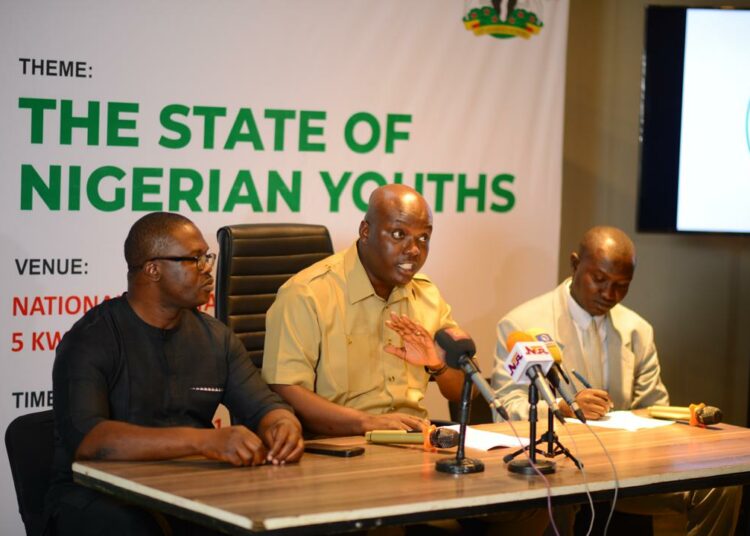As Nigeria commemorates its 64th Independence anniversary, the Nigerian Youth Union (NYU) has raised urgent concerns regarding the state of the nation’s economy.
The union has called for immediate action to address what they term “economic sabotage,” which they believe undermines the potential of youth and threatens the country’s future.
The president of NYU, Chinonso Obasi, stated this in Abuja yesterday, while speaking with the press on “The State of Nigerian Youth.”
According to him, there are no indicators that, at 64, our leaders have created a guaranteed future for every Nigerian youth across areas such as education, economy, security, and youth empowerment.
“The present administration of President Bola Ahmed Tinubu is seen by many Nigerian youths as a disaster and a threat to their future.
“We are concerned about the increasing level of hopelessness and the lack of an enabling environment for youths to excel in present-day Nigeria. Surviving as a youth in Nigeria today is like a camel passing through the eye of a needle.
“Every country experiences economic downturns but typically has a clear exit plan. The Nigerian economy is undoubtedly in that phase but lacks hope or clear measures for improvement.
“The use of palliatives to cushion the effects of a failing economy has become the only measure thus far. Unfortunately, these palliatives only reach those who acknowledge the problems and refuse to confront them,” he said.
While thanking President Tinubu for the novel Nigerian Education Loan Fund (NELFUND), he emphasized the need to remind the president that a loan of five hundred thousand naira (N500,000) to students in an economy where a liter of Premium Motor Spirit (PMS) costs over one thousand five hundred naira (N1,500) is insufficient. With universities raising tuition fees to over four hundred thousand naira (N400,000), coupled with unsafe living conditions in student housing and a lack of job opportunities upon graduation, the good intentions of the NELFUND are undermined.
Regarding security, he noted that the only secure individuals in Nigeria today are politicians who can afford to pay for private security.
“The situation for Nigerian youths is dire; the security of lives and property, which should be a constitutional right of citizens, has become a privilege and a secondary duty of the government.
“Nigerian youths cannot travel freely without budgeting for potential ransom payments in case of kidnapping or other threats on the road.
“Much of the insecurity in Nigeria is politically motivated. For example, in Zamfara State, the significant deposits of gold are a major cause of insecurity due to the activities of economic saboteurs,” he added.











